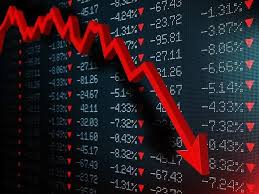Shares slip as U.S. presidential debate looms

European shares slipped on Tuesday as investors awaited the first U.S. presidential debate and eyed progress of a fiscal stimulus package in Washington.
The broader Euro STOXX 600 .STOXX fell 0.4%, eroding hefty gains from a day earlier, with indexes in Frankfurt .GDAXI, Paris .FCHI and London .FTSE each losing between 0.4%-0.5%.
Among the sectors in negative territory: growth-sensitive banks .SX7P, automakers .SXAP and travel & leisure .SXTP, all down between 0.7% and 0.9%.
Investors are weighing the potential impact on the U.S. economy of either the re-election of President Donald Trump or a victory for Democratic presidential nominee Joe Biden.
Many see a Biden victory increasing the chances of further fiscal stimulus to counter the economic damage from the coronavirus pandemic, judging such a scenario would be a boon for stocks.
“What seems clear is that were you to see a blue wave, a Democratic sweep, you’d see substantial fiscal stimulus,” said Mike Bell, global market strategist at J.P. Morgan Asset Management. “The risk, I have always thought, to this recovery is premature fiscal tightening.”
Biden’s campaign has seized on a fresh line of attack on the eve of the debate with Trump – set for after the U.S. market close – accusing the Republican incumbent of gaming the system to avoid paying his fair share of taxes.
“Tonight’s debate will be critical, since it represents one of the last set-piece opportunities for either candidate to change the contours of the race,” Deutsche Bank analysts wrote in a note.
U.S shares were set to open lower, with futures for the S&P 500 and Nasdaq giving up earlier gains to slip into negative territory. Hard-hit sectors like hotels, banks and airlines had made strong gains on Monday.
The MSCI world equity index .MIWD00000PUS, which tracks shares in nearly 50 countries, was flat.
As the global death toll from COVID-19 rose past 1 million, according to a Reuters tally, investors have remained focused on prospects for a stimulus package to help the U.S. economy recover from the damage wrought by the virus.
U.S. House of Representatives Speaker Nancy Pelosi said on Monday that Democratic lawmakers unveiled a new, $2.2 trillion coronavirus relief bill. Pelosi in recent days has said she thinks a deal can be reached with the White House on a new coronavirus relief package and that talks were continuing.
CONFIDENT CONSUMERS?
Also in focus was economic data due later in the day that is set to shed light on the U.S. economy’s progress, with consumer confidence and home price data on the agenda.
The dollar held steady against a basket of currencies at 94.185, drifting away from a two-month high of 94.745 reached last week.
Earlier, MSCI’s broadest index of Asia-Pacific shares outside Japan .MIAPJ0000PUS was flat, shedding earlier gains. China’s blue-chip CSI 300 index .CSI300 climbed 0.2%, though Hong Kong’s Hang Seng index .HSI lost 0.9%, wiping out morning gains.
Asian markets have been buoyed by positive signs around China’s economic recovery, although the continuing havoc caused by the coronavirus pandemic has raised concern about high valuations.
Elsewhere, sterling extended its overnight gains on optimism about a Brexit trade deal as the European Union and Britain kicked off a decisive week of talks.
The pound gained 0.2%, fetching $1.2863, just below the $1.2930 mark touched overnight. Against the euro, sterling changed hands at 90.775 pence.
“The surge of the pound yesterday was a reflection of the more positive mood-music as the talks kicked off,” MUFG analysts wrote, adding that the pound could extend gains this week.





